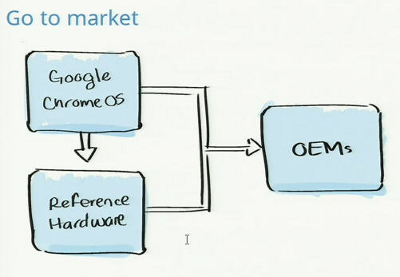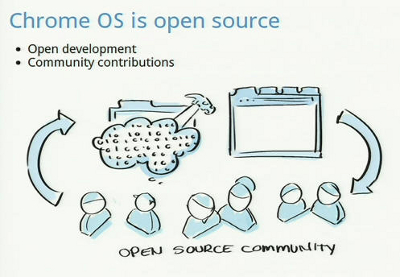Processor agnostic, but hardware specific
The Chrome OS will run runs on either x86 processors or ARM processors but Google says it won't just run on any machine, only on hardware which has been approved by Google and fits certain specifications.
For instance, it won't run on machines that use hard drives, just solid state drives, which are currently a lot more expensive. It also won't support drivers and can't simply be downloaded and used on any old laptop, so, despite the fact it's open source, it still locks you in to certain hardware.

Google says it's working with "major" partners on Chrome OS devices, which it says will probably be clamshell type netbooks but with full size keyboards, slightly larger screens and good resolutions. "we have been reaching out quite aggressively," admitted Pichai.
For now, Google says it's not thinking about a Chrome OS for desktops and the firm seems well aware that the first couple of generations at least will be for secondary machines.
Developers will be able to get their hands on versions of the OS which can be run off virtual machines at the moment, and Google is adamant about opening the code up from today onwards in order to be "good open source citizens" and get feedback from the open source community.

Google reckons the new OS will signify a "paradigm shift in computing" focused on speed, security and simplicity as well as storing all data in the cloud. And while critics will say it is nothing more than a thin client to Google services, many others will see it as a revolution in computing, and more than likely, a huge hit.













